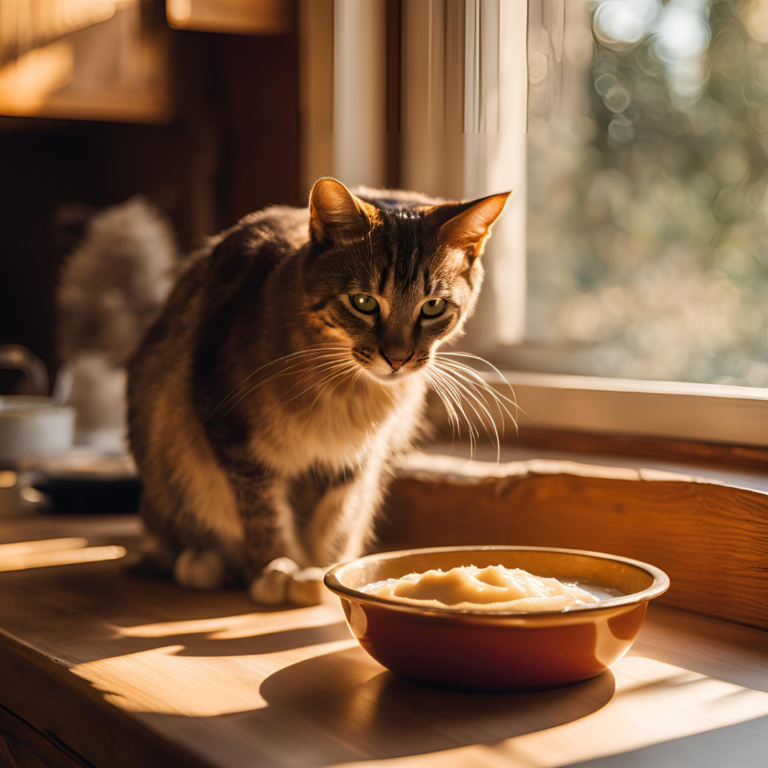Like other fruits, pears are a favorite fruit for many people, but whether cats can eat pears or if pears are harmful to cats is what we will explore in detail today.
Can cats eat pears?
Fruits are generally categorized into two types: toxic and non-toxic. Since pears are safe for humans to eat, it can be assumed that they are non-toxic for cats as well. Therefore, if cats show interest in eating pears, they can consume them, but only in very small amounts. Cats are obligate carnivores, so even though they can eat pears, they cannot obtain the necessary nutrients from them as they would from meat. Therefore, pears should not be included in their regular diet. They can have pears as an occasional treat, but you should consult a veterinarian before giving pears to your cat.
Are pears harmful to cats?
Although pears are not a toxic fruit for cats, certain parts of the pear can make cats sick. For example, pears contain seeds, which have cyanide, a substance that is toxic to cats. If a cat eats too many seeds, it can become ill. Additionally, the stems and leaves of pears are not suitable for cats and can cause vomiting or diarrhea. The skin of the pear can also be difficult for cats to digest.
Cats can have pears as an occasional treat in very small amounts, but it is very important to remove the remaining parts of the fruit before giving it to them. These parts could pose a risk to their health.
Can cats benefit from pears?
While pears are not particularly beneficial for cats, they can offer some advantages. Since cats are obligate carnivores, they get more benefits from eating meat than from eating pears. Meat is essential in their regular diet. However, cats can have pears in very small amounts as an occasional treat. Pears contain vitamins A and C, as well as fiber. Vitamins A and C support the immune system of cats, although cats generally synthesize their own vitamin C and do not require additional amounts. Fiber helps with digestion and can aid in preventing constipation in cats.
However, keep in mind that you should consult with a veterinarian before giving pears to your cat. If they recommend it, you may give pears; otherwise, it is not necessary to do so.
How much pear can a cat eat?
Normally, a person can eat a few pears without any issues, but for cats, they can safely have only a small amount of pear or other fruits as treats. Although pears are not toxic to cats, eating too much can cause health problems.
However, I believe kittens should not be given pears or other fruits or treats at all, as it may lead to nutritional imbalances. For an adult cat, a very small piece or two may be safe. Therefore, pears should be used as an occasional treat. If you are considering giving pears to your cat, consult with a veterinarian first and get their advice.
Should I give my cat pears?
Many people may wonder what could happen if they give their cat pears.
We know that cats are obligate carnivores, so it is crucial that their regular diet includes meat. However, once a cat reaches adulthood, it is usually familiar with many different foods. They can handle small amounts of safe treats without significant health issues. Since pears are not part of their regular diet, they can be given as a very occasional treat if the cat shows interest or likes pears. Although veterinarians generally do not recommend giving pears to cats, if you want to use pears as a treat for your beloved cat, it is very important to consult with a veterinarian first.
How should pears be safely given to a cat?
There are several important considerations when giving pears to a cat. First, choose a fresh, ripe pear. If the pear has any chemicals or pesticides, wash it thoroughly to remove them. Next, remove other parts of the pear such as the skin, seeds, and core. Then cut the pear into very small pieces, making sure they are small enough for the cat to eat without difficulty. Remember that since pears are not part of a cat’s regular diet, they should be given only occasionally as a treat. Meat should remain their primary food.
If you notice any problems or unusual behavior after the cat eats the pear, consult with a veterinarian.
Conclusion
Cats can eat pears, but you should not try to give them pears every day. Giving a small amount of pear occasionally as a treat should not cause major problems. However, it is always best to consult with a veterinarian before giving your cat pears, or any other treats or dealing with any cat-related issues. If you encounter any issues, always try to consult with a vet.



